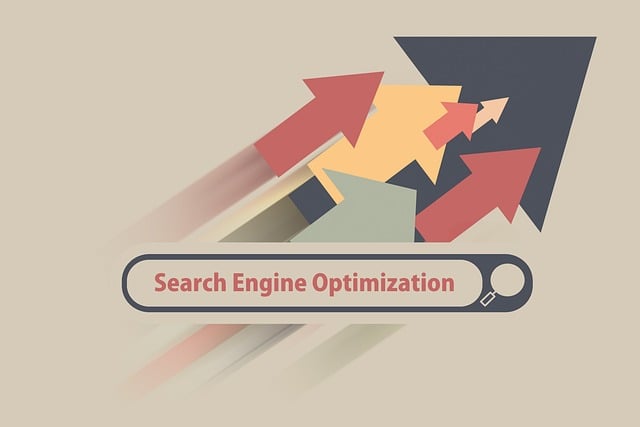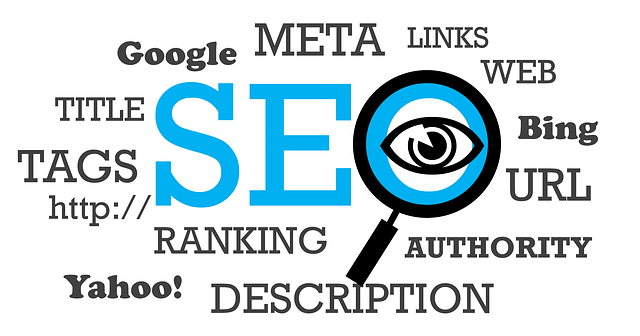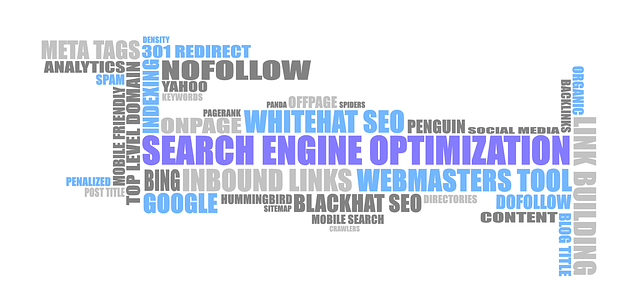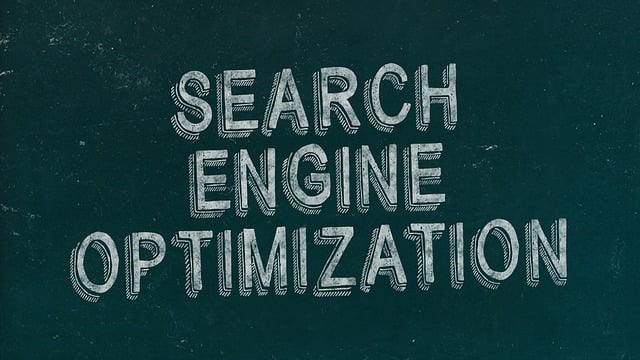Off-Page SEO is a critical digital marketing strategy that boosts website rankings by focusing on activities outside the site. It emphasizes building authority and trust through high-quality backlinks from reputable sources, social media engagement, and brand mentions. Key tactics include guest blogging, broken link building, leveraging influencers, and participating in forums. Analyzing competitor backlink profiles provides valuable insights. Social media interaction is crucial for enhancing brand visibility and authority. Effective Off-Page SEO strategies, combined with robust social media integration, lead to improved search engine rankings and increased organic traffic.
Off-Page SEO is a strategic approach that goes beyond your website’s boundaries, focusing on external factors that influence search engine rankings. This article delves into the intricate world of Off-Page SEO optimization, exploring key concepts and practical techniques. We’ll uncover the power of high-quality backlinks, effective strategies for link building, and the role of social media in shaping your online visibility. By understanding these aspects, you can enhance your website’s authority and improve its search engine rankings through a comprehensive Off-Page SEO strategy.
Understanding Off-Page SEO: Definition and Key Concepts

Off-Page SEO refers to a set of strategies and actions taken outside of your website to improve its search engine rankings. It’s a fundamental concept in digital marketing that focuses on building authority and trust for your brand, which search engines like Google use as key signals when determining site relevance and quality. By engaging in Off-Page SEO, you’re essentially aiming to signal to search engines that your content is valuable and deserves to be ranked higher in search results.
Key concepts within Off-Page SEO include link building, where the goal is to earn high-quality backlinks from reputable websites. These links act as votes of confidence for your site, indicating its value to both users and search engine algorithms. Additionally, social media presence and engagement play a significant role. Social signals send positive messages about your content’s popularity and relevance, which can indirectly influence your SEO performance.
The Role of External Factors in Search Engine Rankings

External factors play a significant role in shaping search engine rankings, especially in the realm of Off-Page SEO. These factors include the overall authority and popularity of a website as perceived by search engines like Google. High-quality backlinks from reputable sources act as votes of confidence, indicating to search engines that a particular site offers valuable content. This positive signal can lead to improved visibility and higher rankings for relevant keywords.
Additionally, external links contribute to a site’s domain authority, which is a metric that measures the overall strength and trustworthiness of a domain. Search engines consider a website’s authority when determining its position in search results. By building a robust Off-Page SEO strategy, focusing on acquiring backlinks from authoritative sites within relevant industries, businesses can significantly influence their online presence and attract organic traffic.
High-Quality Backlinks: How They Impact Your SEO Strategy

High-quality backlinks are a cornerstone of any successful Off-Page SEO strategy. These incoming links from reputable and relevant websites carry significant weight in search engine algorithms, directly influencing your website’s visibility and ranking. When high-authority sites link to yours, it signals to search engines that your content is valuable, trustworthy, and worthy of a higher position in search results. This can lead to increased organic traffic, better domain authority, and a broader online presence.
Moreover, backlinks from diverse sources contribute to a well-rounded Off-Page SEO profile. A mix of links from industry influencers, reputable news outlets, academic institutions, and niche-specific sites demonstrates to search engines that your website has earned its place in the digital landscape. This diversity also helps to mitigate risks associated with over-optimization, ensuring your SEO strategy remains robust and adaptable to algorithm updates.
Effective Methods to Build Valuable Backlinks

Building valuable backlinks is a cornerstone of successful Off-Page SEO strategies. One effective method involves guest blogging on reputable websites within your niche, allowing you to contribute high-quality content while earning backlinks to your site. Another powerful approach is to engage in broken link building, where you identify and replace missing or outdated links on relevant sites with your own content, thereby enhancing both user experience and search engine visibility.
Additionally, leveraging social media platforms can significantly boost your Off-Page SEO efforts. By sharing valuable content and engaging with influencers and industry peers, you increase the likelihood of natural backlinks as users and influencers alike discover and share your content. Moreover, participating in online forums and communities relevant to your niche provides opportunities for natural backlink acquisition through insightful contributions and strategic profile linking.
Analyzing Competitor Backlink Profiles for Insights

In the realm of Off-Page SEO, understanding your competitors’ backlink profiles can offer valuable insights for enhancing your own strategy. By analyzing their linked domains and anchor texts, you can identify high-quality sources they’ve successfully engaged with. This process allows you to discover relevant industry resources, influential bloggers, or reputable websites that carry weight in your niche. More importantly, it helps reveal effective link-building tactics employed by your competitors, including the types of content they create and the strategies they use to attract backlinks.
This competitive analysis provides a roadmap for creating more compelling content and tailoring your outreach efforts to build high-quality backlinks. By mimicking successful competitor strategies while adding unique value, you can elevate your own Off-Page SEO performance.
Social Media's Influence on Off-Page SEO Performance

In today’s digital era, social media platforms have become a powerful force that significantly influences off-page SEO performance. When businesses actively engage on these platforms, they can effectively build their online presence and reach a broader audience. By sharing valuable content, interacting with followers, and gaining exposure through user-generated content, brands enhance their visibility and authority in search engine results. Social media signals act as a crucial indicator for search engines, suggesting the quality and relevance of a website to specific topics or audiences.
Moreover, social media engagement fosters backlinks, one of the primary factors in off-page SEO. When high-authority profiles or influencers share links to a website, it boosts its credibility and increases organic traffic. This interconnection between social media activity and search engine rankings underscores the importance of integrating social media strategies into comprehensive off-page SEO plans.
Guest Blogging: A Powerful Technique for Link Acquisition

Guest blogging is a highly effective strategy within Off-Page SEO, allowing businesses and content creators to establish their presence on reputable websites with relevant audiences. By contributing high-quality articles to popular blogs in their niche, individuals can gain valuable backlinks to their own sites. This not only improves search engine rankings but also establishes credibility and thought leadership.
The process involves researching and reaching out to influential bloggers or website owners, offering them well-crafted content that aligns with their themes and engages their readers. When used correctly, guest blogging diversifies link profiles, showcasing a site’s popularity and authority among industry peers. This technique is particularly beneficial for small businesses or new websites aiming to compete in crowded markets by leveraging the existing audience and trust built by established platforms.
The Importance of Brand Mentions and Citations

In the vast landscape of Off-Page SEO, brand mentions and citations play a pivotal role in establishing online authority and visibility. When reputable sources, including industry leaders and influential blogs, mention your brand or cite your website, it acts as a powerful signal to search engines. This external validation reinforces your brand’s credibility, trustworthiness, and expertise in your niche.
Each brand mention, whether direct or indirect, along with accurate citations, contributes to a positive online reputation. It indicates to search algorithms that your business is a reliable source of information, deserving of higher rankings and increased organic reach. This strategy is particularly effective when citations come from high-authority websites within your industry, as it signals to Google that your brand is a trusted and relevant resource for users searching similar topics.
Measuring and Tracking Off-Page SEO Success

Measuring and tracking Off-Page SEO success is an essential step for any digital marketing strategy. It involves monitoring various metrics to understand the effectiveness of external factors on your website’s rankings. Key performance indicators (KPIs) include analyzing backlink profiles, tracking domain authority and page authority, as well as evaluating social media engagement and brand mentions. Tools like Google Analytics, Search Console, Ahrefs, and SEMrush can help in gathering these insights.
Regularly checking for new backlinks, their quality, and the sources they come from is crucial. Domain and page authority metrics provide valuable information on your site’s trustworthiness and strength in relation to competitors. Social media analytics reveal user interactions and brand sentiment, offering insights into the reach and influence of Off-Page SEO efforts. By consistently measuring these factors, businesses can make informed adjustments to their strategies, ensuring continuous improvement and better search engine visibility.
